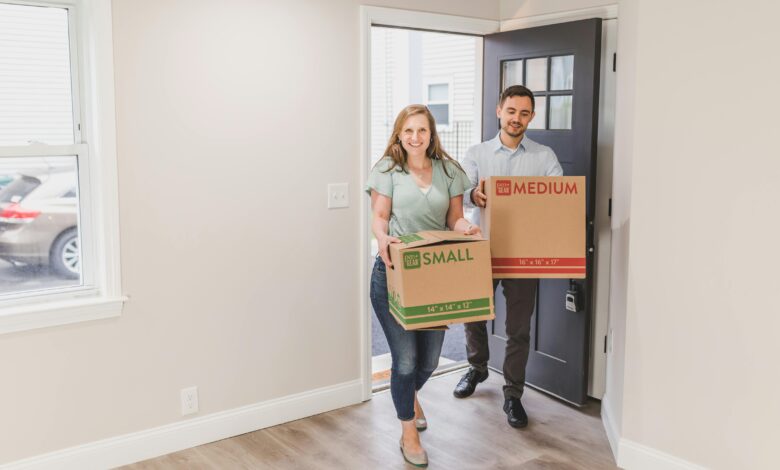The Pros and Cons of Buying New vs. Resale Homes

When it comes to purchasing a home, one of the biggest decisions you’ll face is whether to buy a new construction or a resale (pre-owned) home. Both options have their advantages and disadvantages, and the choice ultimately depends on your budget, lifestyle, and long-term goals. In this guide, we’ll break down the pros and cons of buying new versus resale homes to help you make an informed decision.
Buying a New Home
New construction homes are built from scratch and often come with modern designs, energy-efficient features, and customizable options. However, they also come with certain drawbacks. Let’s explore the pros and cons.
Pros of Buying a New Home
- Modern Design and Features
- New homes are equipped with the latest technology, such as smart thermostats, energy-efficient appliances, and modern finishes.
- Open floor plans and contemporary layouts cater to modern lifestyles.
- Customization Options
- Many builders allow buyers to choose finishes, fixtures, and even floor plans, giving you the opportunity to personalize your space.
- You can select upgrades like granite countertops, hardwood floors, or upgraded lighting.
- Energy Efficiency
- New homes are typically built with energy-saving features like better insulation, double-pane windows, and high-efficiency HVAC systems.
- This can lead to lower utility bills over time.
- Warranty Protection
- Most new homes come with a builder’s warranty that covers structural defects and major systems (e.g., plumbing, electrical) for several years.
- This provides peace of mind and reduces repair costs in the early years of ownership.
- Lower Maintenance Costs
- Since everything is brand-new, you’re less likely to face immediate repairs or replacements for major components like the roof, appliances, or HVAC system.
- Community Amenities
- New developments often include modern amenities like community pools, parks, fitness centers, and walking trails.
Cons of Buying a New Home
- Higher Price Tag
- New homes are often more expensive than comparable resale homes due to the cost of land, materials, and labor.
- Upgrades and customizations can significantly increase the price.
- Potential Delays
- If you’re buying a home still under construction, delays can occur due to weather, supply chain issues, or other factors.
- Move-in dates may not always align with your timeline.
- Lack of Established Neighborhoods
- New developments may feel incomplete or isolated, especially if many homes are still under construction.
- Schools, grocery stores, and other amenities may not yet be established.
- Higher Property Taxes
- New homes are often assessed at a higher value, leading to higher property taxes compared to older homes in the same area.
- Limited Charm
- New homes may lack the character and unique architectural details found in older homes.
- Some buyers find cookie-cutter designs less appealing.
Buying a Resale Home
Resale homes are previously owned properties that offer a range of benefits, including established neighborhoods and potentially lower prices. However, they also come with challenges. Here’s a closer look at the pros and cons.
Pros of Buying a Resale Home
- Lower Purchase Price
- Resale homes are often more affordable than new construction, especially in well-established neighborhoods.
- You may find larger homes or more land for your budget.
- Established Neighborhoods
- Resale homes are typically located in mature neighborhoods with established schools, parks, shopping centers, and public transportation.
- The community vibe is often more developed and welcoming.
- Immediate Move-In
- Unlike new builds, resale homes are ready to move into immediately after closing.
- There’s no waiting for construction to finish.
- Character and Charm
- Older homes often feature unique architectural details like crown molding, hardwood floors, built-in shelving, and vintage fixtures.
- These elements add personality and charm that new homes may lack.
- Negotiation Opportunities
- Sellers of resale homes may be more willing to negotiate on price, repairs, or closing costs.
- You can also request seller-paid inspections or repairs.
- Proven Track Record
- With resale homes, you can assess the condition of the property and neighborhood before buying.
- Issues like plumbing problems or foundation cracks may already be identified and addressed.
Cons of Buying a Resale Home
- Outdated Features
- Older homes may have outdated appliances, wiring, plumbing, or design elements that require costly updates.
- Renovations can be time-consuming and expensive.
- Higher Maintenance Costs
- Resale homes may need repairs or replacements for aging systems like the roof, HVAC, or water heater.
- Hidden issues (e.g., mold, termites) may surface after purchase.
- Less Energy Efficiency
- Older homes are often less energy-efficient, leading to higher utility bills.
- Insulation, windows, and appliances may not meet modern standards.
- Limited Customization
- Unless you’re willing to invest in renovations, you’re stuck with the existing layout and finishes.
- Structural changes can be costly and complex.
- Potential for Hidden Problems
- Even with inspections, some issues (e.g., faulty wiring, foundation cracks) may not be apparent until after you move in.
- Older homes may require ongoing maintenance and repairs.
- Competition in Popular Areas
- Resale homes in desirable neighborhoods may attract multiple offers, driving up prices and making it harder to secure a deal.
Key Factors to Consider
To decide between a new or resale home, consider the following factors:
- Budget
- Can you afford the higher upfront cost of a new home, or do you prefer the affordability of a resale property?
- Timeline
- Do you need to move in immediately, or can you wait for a new home to be completed?
- Location
- Are you looking for an established neighborhood with amenities, or are you open to a newer development?
- Personal Preferences
- Do you prioritize modern features and customization, or do you value charm and character?
- Long-Term Plans
- Are you planning to stay in the home long-term, or is this a short-term investment?


